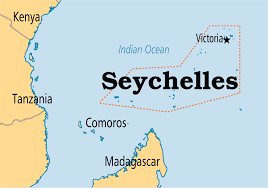The Seychelles are a small island off the coast of the African continent. The country consists of 115 islands. Its capital and largest city, Victoria, lies 1,500 kilometres (932 mi) east of mainland Africa.They became a British colony in 1903. The Island was ruled by an executive and legislative councils. The political system was dominated by the Seychelles Tax Payers Association which was mostly made up of plantation owners. In 1964, the Seychelles Democratic Party (SDP) was formed led by James Mancham and Seychelles People’s United Party (SPUP) which was led by France-Albert Rene. Both parties were successful in the 1967 election. However, in 1970, the SDP won the election and Mancham supported independence which the British of course did not favor.

After the constitutional conference, Seychelles was able to obtain independence in 1976 and James Macham became President while France-Albert Rene became Prime Minister. While Mancham was away, Rene executed a coup and took over. He used the Preservation of Public Security Regulations to rule by decree under the guise that there were people plotting against him. The SPUP became the Seychelles People’s Progressive Front (SPPF). The party was affiliated with National Workers Union (NWU).
Under Rene’s leadership, a new constitution was approved which made the SPPF the sole political party in Seychelles. As a result, Rene ran unopposed. He formed an alliance with Tanzania and Madagascar, who provided the army with training, sent some soldiers and military equipment. He faced his most serious coup threat in November 1981 carried out by mercenaries from South Africa who were captured after a shootout. Later in 1982, a group of soldiers attempted a coup which was thwarted with the help of Tanzania.

Under the new constitution, Rene’s SPPF was able to hold and win election in 1983 and 1987. Rene himself ran and won unopposed in 1984 and 1989. A new Democratic Party was formed by Mancham and Paul Chow in 1989. When Mancham challenged Rene to multiparty elections in 1991 he accepted. After the reforms, eight opposition parties emerged and contested the 1992 election. Rene’s SPPF won 58% of the vote while DP led by Mancham won 33% of the vote. The first draft of the constitution was not approved because it largely favored the SPPF. It was the second draft that was later approved. Under the new constitution, there was to be a 33-member national assembly, a five-year presidency limited to three terms. When elections were held in 1993, Mancham was defeated by Rene again.
Seychellois culture and society is an eclectic mix of French, British, and African influences, with more recent infusions of Chinese and Indian elements.




